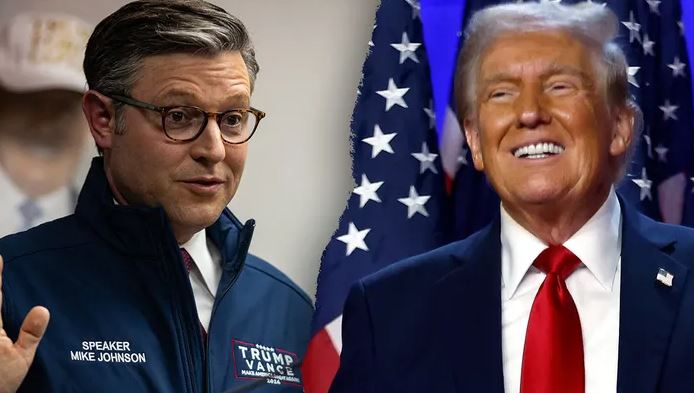Explore the recent passage of President Trump’s budget bill by the House, which extends first-term tax cuts. Stay informed on the latest developments.
Introduction
In a closely contested vote, the House of Representatives has passed former President Donald Trump’s budget bill, which extends the tax cuts introduced during his first term. The bill, a key component of Trump’s economic policy, aims to solidify the tax reductions that were originally enacted under the 2017 Tax Cuts and Jobs Act (TCJA). Despite strong opposition from Democrats and concerns over the growing federal deficit, the legislation managed to secure just enough votes to move forward.
A Contentious Legislative Battle-President Trump
The bill’s passage followed intense debate on Capitol Hill, with lawmakers from both parties expressing starkly different perspectives. Republicans, who largely supported the measure, argued that the tax cuts have stimulated economic growth, encouraged business investment, and benefited middle-class Americans. House Speaker Mike Johnson emphasized that extending these tax reductions would ensure continued economic prosperity, particularly in a time of inflation and economic uncertainty.

On the other hand, Democrats criticized the bill, claiming that it disproportionately benefits the wealthy while increasing the national deficit. House Minority Leader Hakeem Jeffries stated, “This budget bill prioritizes tax breaks for the richest Americans at the expense of working families and critical social programs.” Many Democrats also pointed to studies suggesting that while tax cuts provided short-term economic boosts, they have also led to a significant loss of government revenue, exacerbating the country’s fiscal challenges.
Key Provisions of the Bill
The newly passed legislation extends several key provisions of the 2017 TCJA, including:
- Individual Tax Cuts: The bill maintains reduced income tax rates for individuals, preserving the lower tax brackets introduced under the original legislation.
- Corporate Tax Rate: It upholds the corporate tax rate at 21%, a dramatic decrease from the pre-2017 rate of 35%, which Republicans claim has helped U.S. businesses remain competitive.
- Child Tax Credit: The bill keeps the expanded child tax credit provisions, though some critics argue they do not provide enough support for low-income families.
- Estate Tax Adjustments: The legislation continues to provide higher exemptions for the estate tax, benefiting high-net-worth individuals.
Economic Implications

Proponents of the bill argue that extending these tax cuts will encourage further investment and job creation. “Lower taxes mean more money in Americans’ pockets and a stronger, more competitive economy,” said Republican Representative Kevin Hern. Many GOP lawmakers insist that without an extension, millions of Americans would see a tax hike, which could slow economic growth and reduce consumer spending.
However, opponents argue that the tax cuts have primarily benefited corporations and high-income earners while leading to a widening wealth gap. Some economists warn that without corresponding spending cuts or revenue-raising measures, the extended tax cuts could significantly increase the national debt. According to the Congressional Budget Office (CBO), making these cuts permanent could add trillions to the deficit over the next decade.
The Road Ahead: Senate Approval and Potential Challenges
While the bill has cleared the House, it now faces a significant hurdle in the Senate. With a closely divided chamber, its fate remains uncertain. Several moderate senators have expressed concerns about the fiscal impact of extending the tax cuts without offsetting measures.
Furthermore, President Joe Biden has signaled his opposition to the legislation, arguing that it favors the wealthy and undermines the nation’s long-term economic health. If the bill reaches his desk, he could veto it, setting up a potential showdown between Congress and the White House.
Public Reaction and Political Fallout
The bill’s passage has ignited strong reactions from both conservative and progressive advocacy groups. Supporters view it as a continuation of pro-business, growth-oriented policies, while critics see it as a move that exacerbates income inequality. With the 2024 elections approaching, the issue of tax policy is expected to remain a central topic of debate, influencing both congressional races and the presidential contest.
As lawmakers prepare for the next stage of the legislative battle, the nation watches closely to see whether the tax cuts that defined Trump’s first term will continue shaping the U.S. economy for years to come.

